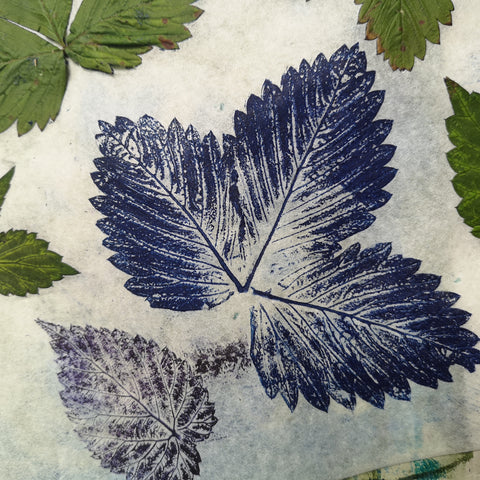
Botanical printing, a unique and creative technique, combines nature, ink, and a roller to produce stunning prints inspired by the natural world. It is a process that allows artists and enthusiasts to create beautiful designs using actual plant materials.
Botanical printing involves applying ink or dye to the surface of leaves, flowers, or other plant parts and then transferring their intricate patterns onto paper or fabric. The plant materials act as natural stamps or stencils, leaving behind their unique shapes and textures on the chosen medium.
In this blog post I will create botanical prints on teabag paper as I wish to use them later in my sketchbooks to layer up details and interest.
Step 1
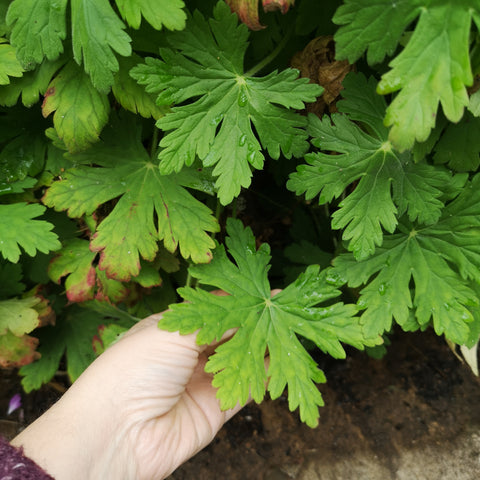
Start by selecting fresh leaves or flowers with interesting shapes and textures. nothing too delicate if you want to use them over and over again.
Step 2
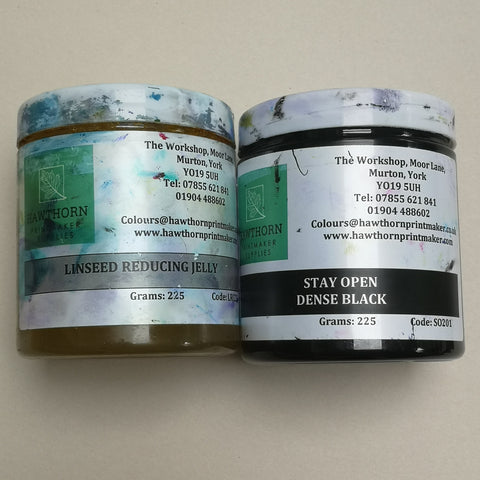
These natural elements are then coated with printing ink before being carefully placed onto the teabag paper. I used Hawthorn Stay Open Inks as they don't need special chemicals to clean up afterwards, just vegetable oil and soap. In some of these examples I also used Cranfield Caligo Safe Wash Relief Ink. A roller is used to apply even pressure across the plant material, ensuring that the ink adheres evenly.
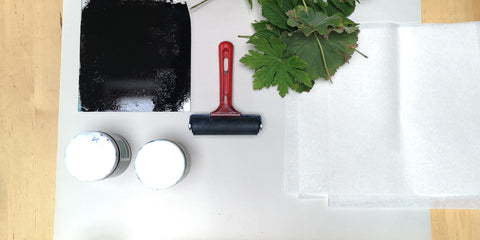
Step 3

Lay the ink coated leaves face up on a clean surface. Lay a sheet of teabag paper over the top. I used both thin and thick teabag papers in the making of my prints as I want a variety of transparencies in my work.
Step 4
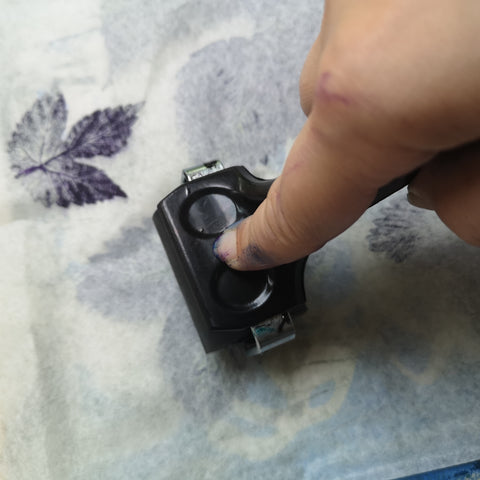
Using a clean roller, roll over the top of the leaves once. The bonus of teabag paper is it is clear when you have the image printed on the other side as you can see it clearly. Carefully lift the paper off and leave it to dry thoroughly before using.
The result is a visually striking print that captures the delicate details of nature. Each piece becomes an exquisite representation of foliage, showcasing the intricacies of leaves or petals in vibrant colours.
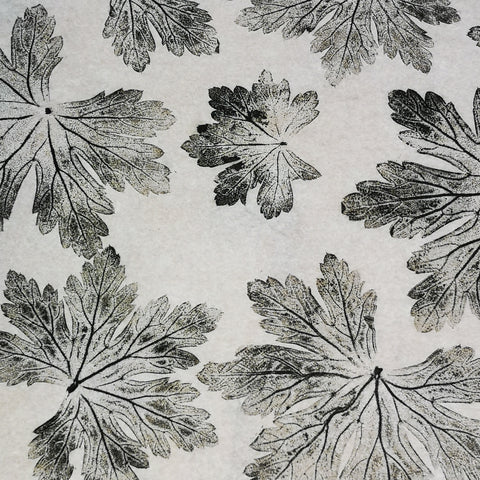
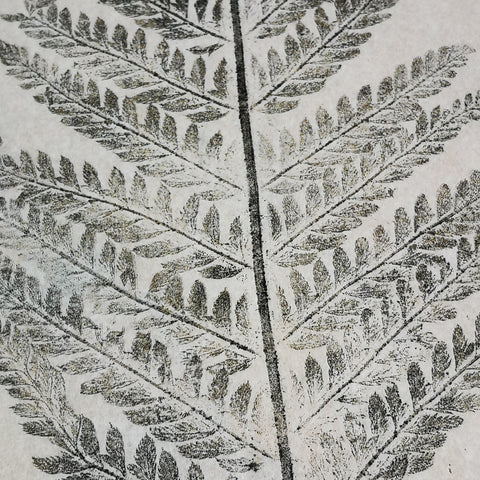
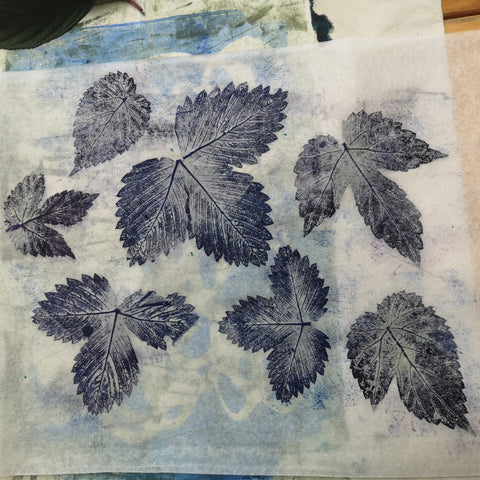
Botanical printing offers endless possibilities for artistic expression. Artists can experiment with different types of plants, inks, and mediums to achieve varying effects and colour combinations.
Whether creating botanical prints for personal enjoyment or professional purposes such as home decor items or textile designs, this technique brings together a love for nature with a passion for creativity. The process is simple but addictive, a grown up version of leaf printing as a child. That's not to detract from the results though! Seeing plants printed in this degree of detail really highlights the beauty in nature
In conclusion, both weights of teabag paper, the thin and the thick are great in picking up the fine details of the botanical prints. I personally will use mine in my sketchbooks but they can be used in a wide range of ways whether that be stand alone art pieces, to be sewn in to, to collage with or to be painted in to.
If you would like to try teabag paper in your own projects you can find the two different weights here in my shop.
